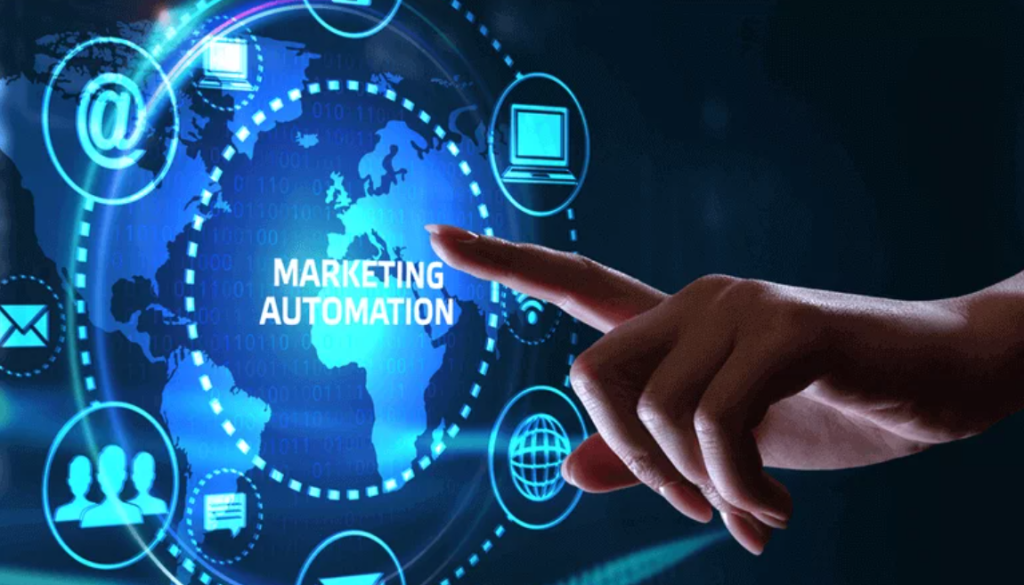Businesses are always looking for methods to improve client experiences, boost productivity, and streamline processes in the fast-paced corporate world of today. The fast expanding field of marketing automation in digital marketing has shown to be an effective means of achieving these objectives. Through the utilization of technology, companies can streamline monotonous processes and concentrate on key initiatives that propel expansion and financial gain. This article examines marketing automation, including its advantages, essential elements, and effects on contemporary marketing. Marketing chores including email marketing, social media posting, lead generation, and campaign management can be automated with the use of software and technology. Optimizing marketing efforts, cutting down on manual work, and raising campaign efficacy and efficiency are the main goals. Businesses can provide clients with individualized experiences at scale. Marketers can focus on producing more relevant and targeted content, which will increase engagement and conversion rates, by automating repetitive processes. Furthermore, it offers insightful data on consumer behavior, enabling companies to make data-driven decisions and improve their tactics.
Benefits:
- Efficiency and Time Savings: Marketing teams may free up significant time by automating processes like managing ad campaigns, posting on social media, and sending emails. They are able to concentrate on tactical projects like content production and campaign optimization as a result.
- Better Lead Generation and Nurturing: Automation technologies make it easier for companies to find and connect with potential clients. Businesses can gather leads from several sources and nurture them with customized email sequences by automating lead generation procedures. This guarantees that leads receive the appropriate material at the appropriate moment.
- Improved Customer Segmentation: Automation tools let companies divide up their clientele into groups according to characteristics like interests, behavior, and demographics. Higher engagement and conversion rates are the outcome of this segmentation, which makes it possible to send more personalized and targeted marketing communications.
- Data-Driven Insights: Automation tools give comprehensive reporting and analytics that shed light on the effectiveness of campaigns. With the use of these insights, marketers may enhance campaign efficacy overall, optimize strategies, and make data-driven decisions.
- Scalability: Handling marketing campaigns by hand gets harder as companies get bigger. Expanding reach and breaking into new markets require businesses to be able to scale their marketing activities without having to add a substantial amount of work.
Key Components:
- Automation of Email Marketing: It is one of the main elements. Businesses may ensure that clients receive relevant material by using automation technologies to develop and distribute personalized email campaigns based on specified triggers, including user behavior or time-based events.
- CRM (Customer Relationship Management) Integration: Businesses can handle customer contacts more skillfully by combining CRM systems with automated marketing. The sales and marketing teams will always be in sync and working toward the same objectives if duties like lead scoring and customer segmentation are automated.
- Social Media Automation: It can take a lot of time to manage several social media profiles. In order to maintain a constant and successful social media presence, businesses can use automation tools to schedule posts, monitor engagement, and evaluate performance across platforms.
- Lead scoring and nurturing: Businesses can focus their efforts on high-value prospects by using automation solutions to automatically evaluate leads based on parameters like engagement and demographics. Leads can be cultivated by automated email sequences once they have been scored, until they are prepared to make a purchase.
- Analytics and Reporting: Continuous optimization and analysis are essential components of automated marketing. Businesses may measure important metrics like open rates and conversion rates with the support of platforms that offer comprehensive information on campaign effectiveness, which aids marketers in fine-tuning their approaches.
The Future of Marketing Automation:
Its capabilities will grow as technology advances. It is anticipated that machine learning (ML) and artificial intelligence (AI) will be important in enabling more advanced customization, targeting, and optimization. Large volumes of data may be analyzed by AI-driven algorithms to forecast consumer behavior, enabling companies to provide highly customized experiences at scale. Incorporating it with cutting-edge technologies like chatbots and the Internet of Things (IoT) will also improve companies’ capacity to interact with clients in real-time via a variety of channels.
In a nutshell, businesses’ approaches to marketing are changing as a result of marketing automation. As it helps businesses run more smoothly and productively by streamlining repetitive processes, enhancing lead creation, and offering insightful data. Businesses that use automation will be well-positioned to stay ahead of the competition, provide individualized consumer experiences, and spur long-term growth as technology advances.

